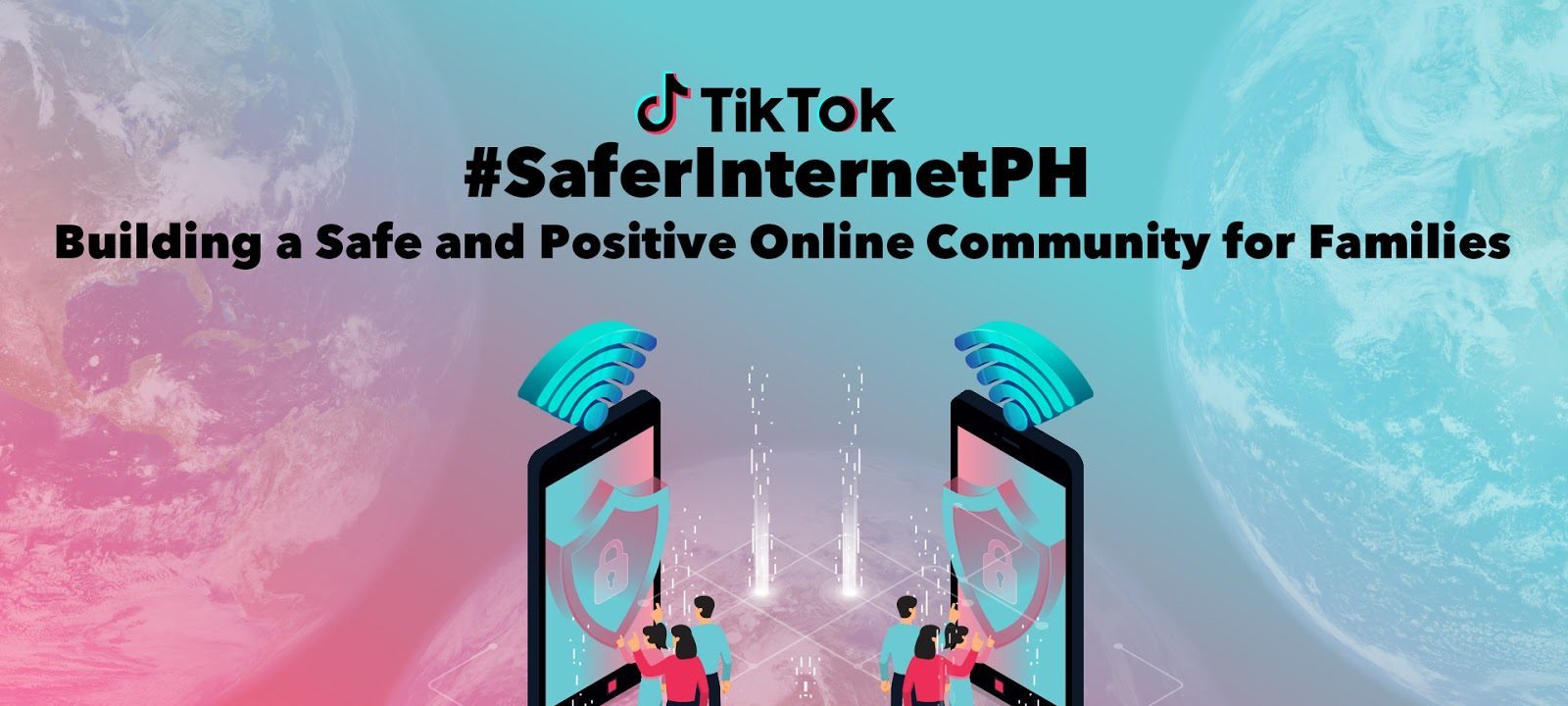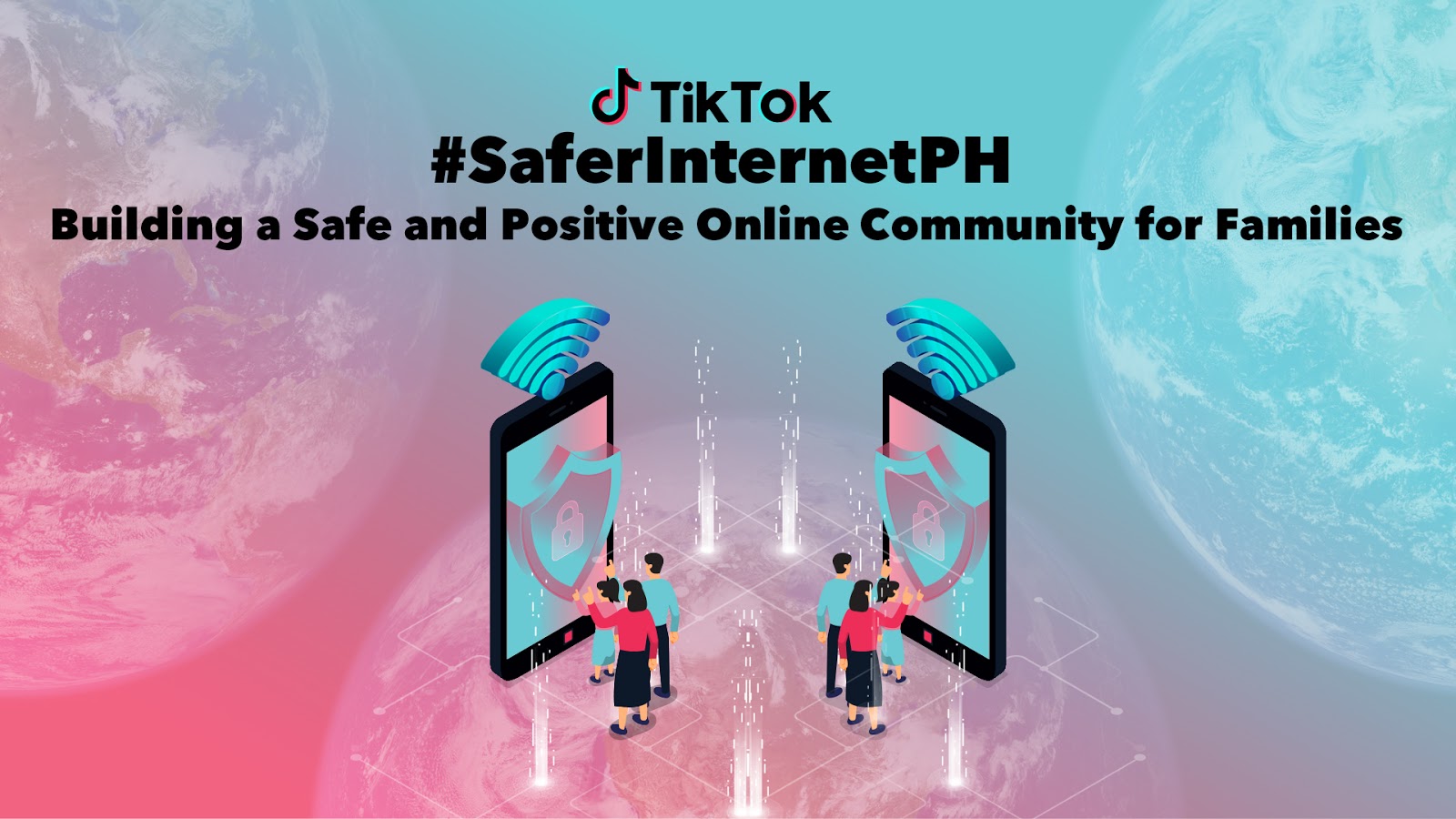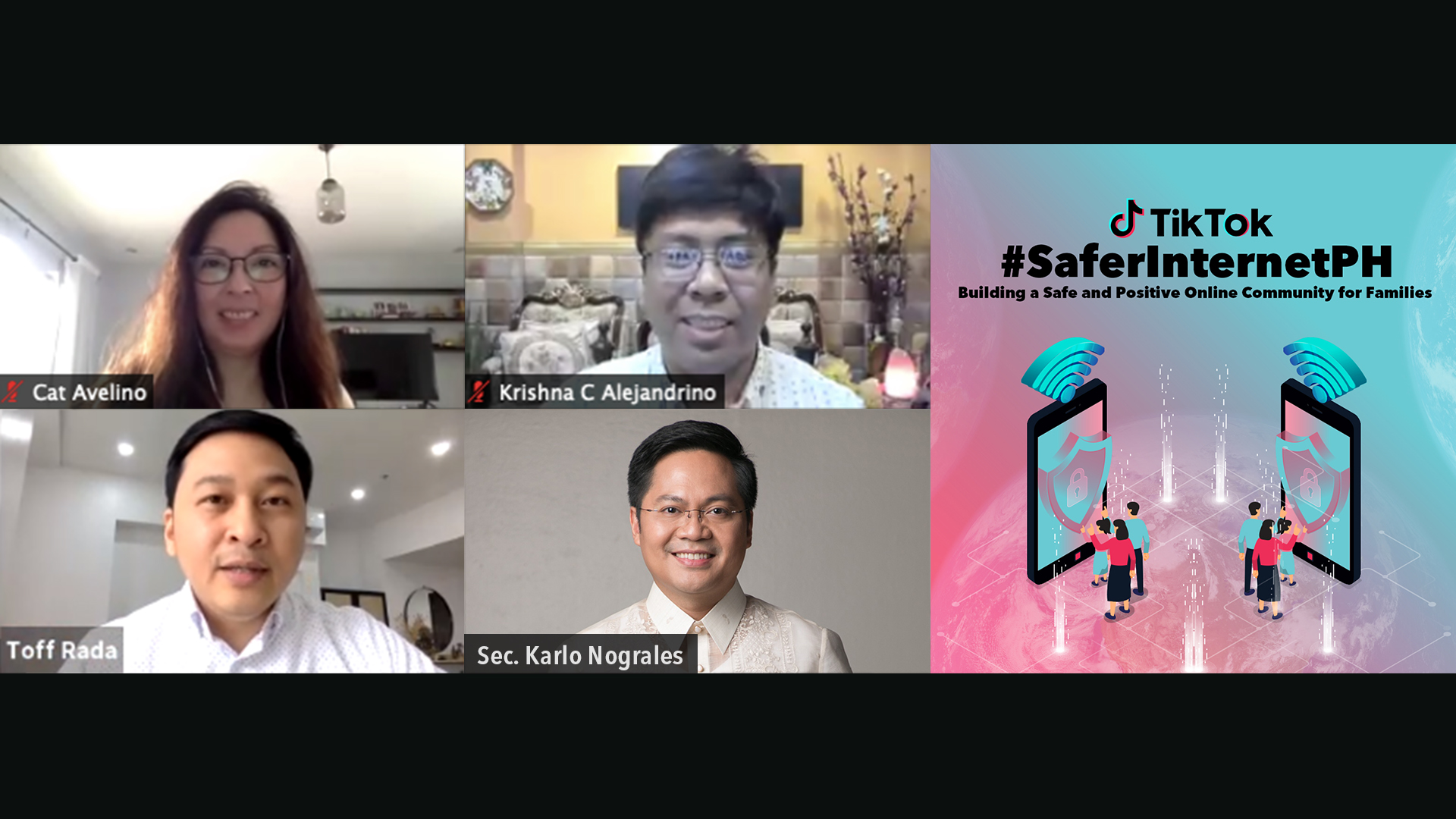TikTok continues its efforts to promote a safe and positive environment online, this time through a new Family Safety Toolkit developed in partnership with the DQ Institute, a leader in digital education, culture and innovation. The Toolkit incorporates the DQ Framework, which is the world’s first global standard related to digital literacy, skills, and readiness.
“The DQ Institute is excited to work with TikTok, one of the top platforms influencing young minds today, in supporting families across the Southeast Asian region. According to the 2020 Child Online Safety Index, 64% of Southeast Asian youth have experienced at least one cyber-risk, such as cyberbullying, tech addition, and risky content and contact. With the COVID-19 pandemic sending more teens online, this number has increased – demanding online safety to be more critical than ever before. This is why the TikTok Family Safety toolkit is especially important. It empowers parents with simple and practical digital parenting tips to support their teens’ digital life, and empowers teens to constantly check and improve their digital citizenship skills in navigating TikTok – and all other apps – safely and responsibly.”
–Dr. Yuhyun Park, Founder, DQ Institute
Within the Toolkit, parents will find a list of digital parenting tips that they can refer to when setting guidelines for their teens’s safe and responsible use of TikTok and other apps. It also offers a simple and practical guide for how to use TikTok’s Family Safety Tools in order to put these digital parenting tips into practice.
“Online safety is definitely top priority for TikTok, we want all our users to have a safe and positive experience on the platform. We understand the importance of family in the Philippines, and are grateful for the opportunity to be rolling out this initiative to help Filipino families become better digital citizens,” said Kristoffer Rada, TikTok Head for Public Policy.
The Family Safety Toolkit was launched as part of TikTok’s Safer Internet Day celebration together with Junior Achievement (JA) Philippines, TikTok’s local distribution partner.
“Here in the Philippines, like much of the rest of the world, the internet has become a borderless space to learn, communicate and earn a living. JA Philippines’ goal is to adhere to the whole child education approach, ensuring that they are mentally healthy and safe. We are happy to partner with TikTok through the Tiktok Family Safety Toolkit. Participating in this education program aligns with our mission to whole child education philosophy, not only bringing relevant skills that they need in the 21st century but ensuring they are secure netizens of the world,” said Krishna Alejandrino, JA Philippines Executive Director.
In his video message, Cabinet Secretary Karlo Nograles said, “The government is committed to make the internet a better and safer place. And on Safer Internet Day, I commend this opportunity to partner with TikTok and explore many more ways to truly make this happen. This is an important initiative to help and advocate in the dissemination of information, in the campaign to ensure a safe digital space.”
Top 10 Digital Parenting Tips
Featured in the Toolkit are 10 top Digital Parenting Tips, which parents can use to set guidelines for their teens’ safety when they use the app. These are:
- Check Your Child’s Tech Readiness
Parents should make sure that their child is older than the app’s intended age limit. Teens are also ecnouraged to check their DQ score through the Family Safety Toolkit, to test their level of digital citizenship, and understand whether or not they are ready to use apps safely and responsibly.
- Agree on Family Tech Boundaries
Parents are encouraged to come to an agreement with their teens for when and where they can access and use digital devices, and what content they can watch, use, and play.
- Set Smart Limit on Screen Time
Setting screen time limits can help teens develop self control and time management skills, and can benefit their overall health and wellbeing.
- Talk about Cyber-Bullying
Parents should regularly engage in open and honest conversations with their teens about cyber-bullying, and ask if they or any of their friends have experienced or witnessed this online.
- Talk about Privacy
Teens need to understand the value of online privacy, and learn about digital footprint management and cybersecurity management. It is also important for parents to encourage teens to read privacy policies carefully before signing into any apps or websites.
- Talk about Risky Contacts and Content
Parents should remind teens to be careful of risky content online, such as violence and hate speech, as well as risky contact like exploitation, online grooming, and unwanted sexual contact.
- Talk about Sexting
The consequences of sharing intimate images and messages online need to be made clear to teens, and parents need to be able to talk to their children about this. Parents should also check if their teen has been requested to share intimate or sexually explicit messages, photos or videos with anyone, and if so, act fast to minimize the risk of harm.
- Talk about Dis-/ Mis-Information
With all the fake news circulating online, it is important for parents to teach teens to think critically and distinguish between dis-/mis-information and legitimate facts.
- Connect with Support Networks
Developing a good support and protection network around a teen, which includes parents, family members, educators, and other experts, can help keep them safe from cyber-risk situations.
- Make Videos Together
TikTok is fun and easy to use, and creating content together with their teen is a great way for parents to get involved, learn about their interests, and understand them better.
“We’re excited to partner with DQ Institute to launch the TikTok Family Safety Toolkit aligned with the DQ framework, the world’s first global standard of digital literacy and digital skills. One of our highest priorities at TikTok is to keep our community safe and we’re happy to co-develop this Toolkit as a comprehensive digital parenting guide to help educate families on online safety and digital citizenship through a wide range of policies, tools and resources available on TikTok.”
–Arjun Narayan Bettadapur, Director, Trust & Safety, TikTok, Asia Pacific
You may access the Family Safety Toolkit through TikTok’s Safety Center. Download TikTok on your iOS and Android devices to start using the app today.
ADVT.





